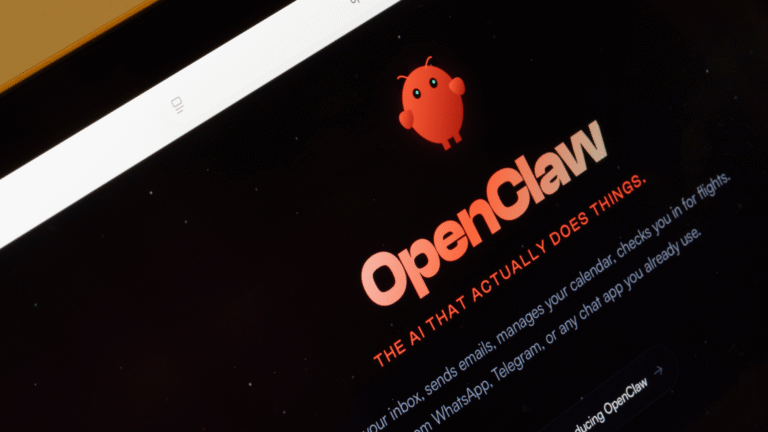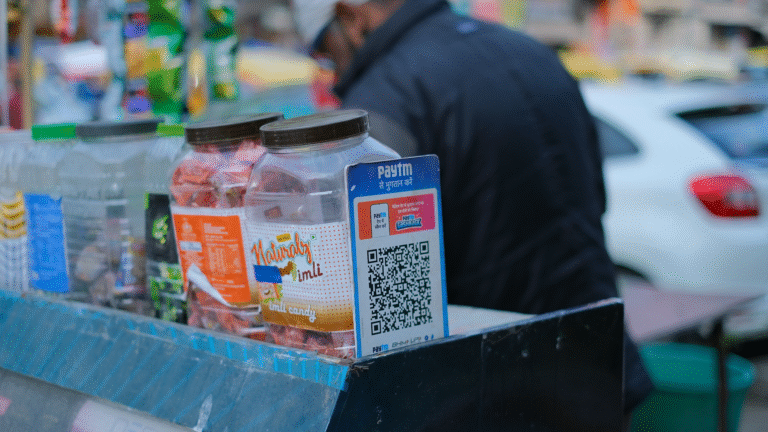Good morning, readers!
Today, we begin in China, where the central bank injected $138 billion into the economy and expanded the money supply by 12.5% year-over-year. As the regime eases monetary conditions to prop up a decelerating economy, Chinese citizens are rushing to preserve their savings, evidenced by Bitcoin/CNY trading activity jumping over 20% on the news. But while some escape to harder money, others remain trapped. In Hunan, an elderly Chinese woman died outside a bank after being forced to appear in person in order to withdraw her own money for medical care.
In Central America, Salvadoran President Bukele revived a “foreign agents” bill that would impose a 30% tax on foreign-funded NGOs, threatening to financially crush organizations that hold those in power accountable and protect journalists and civil society. The proposal mirrors laws used in Russia, China, Belarus, and beyond to suppress dissent. And it arrives amid Bukele’s authoritarian drift and increasing threats to independent journalists.
In open-source news, we highlight a new tool called ChapSmart, a Bitcoin-powered remittance service that allows users to send Bitcoin to citizens and families in Tanzania and have it disbursed in Tanzanian shillings (TZS) via M-PESA. This tool is increasingly helpful as the Tanzanian regime tightens control over foreign currency, mandating that all transactions be conducted in TZS. ChapSmart provides an accessible way for nonprofits and dissidents to access value from abroad using Bitcoin.
We end with an Ask Me Anything (AMA) with Bitcoin educator Anita Posch on Stacker News, who shares her thoughts, experiences, and views from her time conducting Bitcoin education in authoritarian regimes in Africa. We also feature an article from Togolese human rights advocate Farida Nabourema, who critiques Nigeria’s new investment act for classifying Bitcoin as a security and for the regulatory hurdles this will impose on the grassroots adoption of freedom tech in the country.
Be sure to tune in next week at 2 p.m. Oslo time on Wednesday, May 28, as the Oslo Freedom Forum’s Freedom Tech track airs on Bitcoin Magazine’s livestream channels, headlined by speakers Ziya Sadr, Abubakr Nur Khalil, Amiti Uttarwar, Calle, Sarah Kreps, Ben Perrin, and many more.
Now, let’s read on!

Global News
El Salvador | Bukele Reintroduces Foreign Agents Bill
In El Salvador, President Nayib Bukele revived a controversial “foreign agents” bill that threatens to severely restrict the finances and operations of NGOs. While the bill is not finalized, Bukele shared on X that the proposal would impose a 30% tax on donations to NGOs receiving foreign funding. This punitive financial measure alone would severely restrict Salvadoran organizations that protect independent journalism, advocate for human rights, and hold the government accountable. In neighboring Nicaragua, a similar foreign agents law has enabled the closure of more than 3,500 NGOs. El Salvador’s foreign agents bill arrives alongside other alarming moves, including arrest warrants against El Faro journalists, the arrest of human rights lawyer Ruth López, and the detention of more than 200 Venezuelan migrants under dubious claims of gang affiliation.
China | Injects Billions to Stabilize Economy
The Chinese Communist Party (CCP) has injected $138 billion in liquidity through interest rate cuts and a 0.5% reduction in banks’ reserve requirements, in effect expanding the money supply by 12.5% year-over-year. While the state eases monetary conditions to prop up a fragile system, ordinary citizens are left scrambling to preserve the value of their savings. Bitcoin/CNY trading volumes jumped over 20% in response, as people sought refuge from a weakening yuan. But while some can quietly escape to harder money, others are trapped in a system that treats access to money as a privilege. In Hunan, an elderly woman in a wheelchair died outside a bank after being forced to appear in person to withdraw her own money for medical care. Too weak to pass mandatory facial recognition scans, she collapsed after repeated failed attempts.
Thailand | Plans to Issue New “Investment Token”
Thailand’s Ministry of Finance plans to issue 5 billion baht ($151 million) worth of “G-Tokens,” a new digital investment scheme that allows Thais to buy government bonds for as little as 100 baht ($3). Officials claim the project will democratize access to state-backed investments and offer higher returns than traditional bank deposits. But in a country rapidly advancing central bank digital currency (CBDC) infrastructure, this initiative raises apparent concerns. The move closely follows Thailand’s repeated digital cash handouts via a state-run wallet app, which restricts spending, tracks user behavior, and enforces expiration dates on money, all clear hallmarks of a CBDC. Luckily, the Thai government postponed the latest handout, but the infrastructure remains. Framing this project as inclusionary masks the reality: Thailand is building state-run digital systems that give the regime more power over citizens’ savings and spending
Russia | Outlaws Amnesty International
Russia officially banned Amnesty International, designating it as an “undesirable organization” and criminalizing cooperation with the global human rights group. Russian officials claim Amnesty promotes “Russophobic projects” and undermines national security. This adds to the Kremlin’s assault on dissent, targeting human rights advocates, independent journalists, and civil society in the years since the 2022 full-scale invasion of Ukraine. The designation exposes anyone financially, publicly, or privately supporting Amnesty’s work to prosecution and imprisonment up to five years. With more than 220 organizations now blacklisted, Russia is systematically cutting off avenues for international accountability and isolating Russians from external support.
Recommended Content
Bitcoin Is Not a Security: Why Nigeria’s New Investment and Security Act Misses the Mark by Farida Nabourema
In this article, Togolese human rights advocate Farida Nabourema critiques Nigeria’s 2025 Investment and Securities Act for classifying Bitcoin as a security. Nabourema argues this approach is flawed, economically damaging, disconnected from the realities of Bitcoin usage and innovation across Africa, and an attempt to constrict a human rights tool. She warns that this regulatory framework risks stifling builders and harming the very communities that Bitcoin is helping in a context of widespread currency devaluations, inflation, and exclusion. Read it here.

Bitcoin and Freedom Tech News
ChapSmart | Permissionless Remittances in Tanzania
ChapSmart is a Bitcoin-powered remittance service that allows users to send money to individuals and families in Tanzania while having it disbursed in Tanzanian shillings (TZS) via M-PESA. With ChapSmart, no account is needed: just enter your name, email, and the recipient’s M-Pesa details. Choose how much USD to send, pay in bitcoin via the Lightning Network, and ChapSmart delivers Tanzanian shillings instantly to the recipient’s M-Pesa account with zero fees. This tool is especially useful as Tanzania’s regime enacts restrictions on foreign currencies, banning most citizens from quoting prices or accepting payment in anything other than TZS. ChapSmart offers a practical and accessible way for families, nonprofits, and individuals to access value from abroad using Bitcoin, even as the state tries to shut out financial alternatives.
Bitkey | Multisignature for Families Protecting Wealth from State Seizure
Decades ago, Ivy Galindo’s family lost their savings overnight when the Brazilian government froze citizens’ bank accounts to “fight inflation.” That moment shaped her understanding of financial repression and why permissionless tools like Bitcoin are essential. When her parents later chose to start saving in Bitcoin, Ivy knew a wallet with a single private key wasn’t enough, as it can be lost, stolen, or handed over under pressure or coercion from corrupt law enforcement or state officials. Multisignature (multisig) wallets, which require approval from multiple private keys to move funds, offer stronger protection against this loss and coercion and eliminate any single points of failure in a Bitcoin self-custody setup. But multisig setups are often too technical for everyday families. Enter Bitkey. This multisig device offered Ivy’s family a simple, secure way to share custody of their Bitcoin in the face of financial repression. In places where wealth confiscation and frozen bank accounts are a lived reality, multisignature wallets can help families stay in full control of their savings.
Parasite Pool | New Zero-Fee, Lightning Native Bitcoin Mining Pool
Parasite Pool is a new open-source Bitcoin mining pool built for home miners who want to contribute to Bitcoin’s decentralization without relying on the large and centralized mining pools. It charges zero fees and offers Lightning-native payouts with a low 10-satoshi threshold, allowing individuals to earn directly and instantly. Notably, it has a “pleb eat first” reward structure, which allocates 1 BTC to the block finder and splits the remaining 2.125 BTC plus fees among all non-winning participants via Lightning. This favors small-scale miners, who can earn outsized rewards relative to their hashpower, inverting the corporate bias of legacy mining pools. This makes Parasite Pool especially attractive for small scale miners, such as those operating in authoritarian contexts who need to mine discreetly and independently. In turn, these very same miners contribute to the Bitcoin network’s resistance to censorship, regulatory capture, and corporate control, ensuring it remains a tool for freedom and peaceful resistance for those who need it most. Learn more about the mining pool here.
Cake Wallet | Implements Payjoin V2
Cake Wallet, a non-custodial, privacy-focused, and open-source mobile Bitcoin wallet, released version 4.28, bringing Payjoin V2 to its user base. Payjoin is a privacy technique that allows two users to contribute an input to a Bitcoin transaction, breaking the common chain analysis heuristic that assumes a sender owns all inputs. This makes it harder for dictators to trace payments or link the identities of activists or nonprofits. Unlike the original Payjoin, which required both the sender and recipient to be online and operate a Payjoin server, Payjoin v2 removes both barriers and introduces asynchronous transactions and serverless communication. This means users can now conduct private transactions without coordination or technical setup, making private Bitcoin transactions much more accessible and expanding the tools dissidents have to transact in the face of censorship, extortion, and surveillance. HRF is pleased to have sponsored the Payjoin V2 specification with a bounty and is happy to see this functionality now in the wild.
Mi Primer Bitcoin | Receives Grant from #startsmall
Mi Primer Bitcoin, a nonprofit organization supporting independent Bitcoin education in Central America, announced that it received a $1 million grant from Jack Dorsey’s #startsmall public fund. This support will accelerate Mi Primer Bitcoin’s impartial, community-led, Bitcoin-only education. The initiative has trained tens of thousands of students while supporting over 65 grassroots projects across 35+ countries through its Independent Bitcoin Educators Node Network, pushing financial freedom forward where needed most. The Mi Primer Bitcoin (MPB) team stresses the importance of remaining free from government or corporate influence to preserve the integrity of their mission. As founder John Dennehy puts it, “Education will be captured by whoever funds it… We need to create alternative models for the revolution of Bitcoin education to realize its full potential.” MPB has been adopted by many education initiatives working under authoritarian regimes.
Phoenix Wallet | Introduces Unlimited BOLT 12 Offers and Manual Backup Options
Phoenix Wallet, a mobile Bitcoin Lightning wallet, introduced support for unlimited BOLT 12 offers in its v2.6.0 update, allowing users to generate as many reusable Lightning invoices as they like. These offers, which function like static Bitcoin addresses, remain permanently valid and can now include a custom description and amount — ideal for nonprofits or dissidents who need to receive regular donations discreetly. The update also introduces manual export and import of the payments database on Android, enabling users to securely transfer their payment history to new devices. These updates strengthen Phoenix’s position as one of the most user-friendly and feature-complete non-custodial Lightning wallets. BOLT 12 — once a pipe dream — is now a usable activist tool on popularly accessible mobile wallets.
Recommended Content
Ask Me Anything with Anita Posch on Stacker News
After spending five months traveling through countries like Kenya and Zimbabwe, Bitcoin for Fairness Founder Anita Posch joined Stacker News for an Ask Me Anything (AMA) to discuss her view on Bitcoin adoption across the continent. She highlighted major progress since 2020, noting that several grassroots initiatives she supported have become self-sufficient and are now running their own education programs. Despite persistent challenges, like wallet usability, high on-chain fees, and Bitcoin’s misunderstood reputation, she shared stories of real-life impact, including cross-border remittances using mobile airtime and widespread Lightning use via apps like Tando in Kenya. Read the full conversation here.









